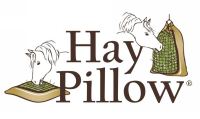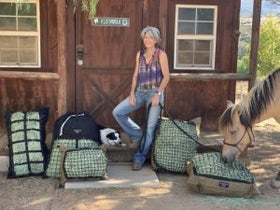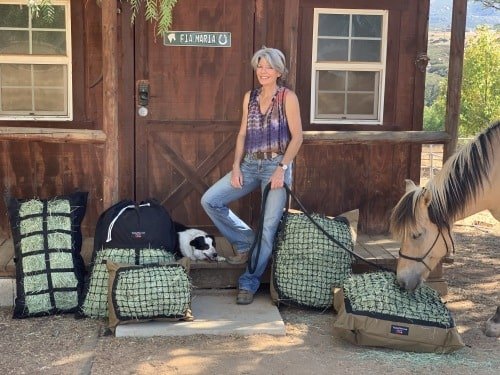Causes of Equine Ulcers – 7 Stress Factors & Solutions
What inspired me to write this article? Speaking to countless customers whose beloved companions have ulcers - yet who were unaware of how the horse’s current lifestyle and/or feeding schedules were adding to the stress factors that may have caused the ulcers.
Read on to learn about important lifestyle and feeding practices that can minimize the chance of occurrence and/or recurrence of ulcers. Causes are truly multi dimensional - encompassing both mental and physical factors.

Facts to Consider - Equine Gastric Ulcers
According our listed references, the following types of horses have the highest frequency of gastric ulcers:
- Racehorses (80-90%)
- Endurance horses (70 %)
- Show horses (60 %)
- Foals (50%)
- Non-performance horses (30-40%)
Note: Ulcers can also develop in the hindgut (colonic) - which should also be considered. Hindgut ulcers require a completely different protocol to heal.
Gastric Acid Build Up - Understanding the Math
- The average 1,000 pound horse continuously produces acid in preparation for constant uptake: 16 gallons of gastric/hydrochloric acid daily.
- The stomach only has a 2 to 4 gallon capacity.
- The stomach can begin to empty in 20 minutes to 2 hours - depending on the type of feed and rate of consumption. The faster feedstuff is consumed, the less time it spends in the stomach buffering acid.
- The math results: 16 gallons divided by 24 hours = .66 gallons produced per hour
- If we assume the stomach empties in 1 hour - with a 3 gallon capacity - the gastric acid can fill up to over half way in a little over 2 hours.
Horses Are Stoic by Nature - Yet Stress Builds Internally
Stress increases gastric acid production and is often induced when a horse's natural instincts are suppressed such as: lack of forage; confinement/isolation; lack of movement; lack of direct physical interaction with other herd members; pain; lack of nutrients, vitamins and minerals necessary for proper thyroid, hormone and neurological function; transport; and rigorous training.
7 Common Equine Stress Factors & Solutions
1. Lack of Forage
Lack of forage tops the stress factor list - it goes against a horse's natural grazing instincts; physically and mentally they are designed to have access to forage 24/7. Chewing increases saliva production (an alkaline substance), which buffers the constant flow of gastric acid. Scheduled meals (standard AM & PM feedings) that leave the horse with an empty stomach allows for unbuffered gastric acid to accumulate potentially burning holes in the stomach lining.
In nature, horses graze at will and voluntarily take breaks to sleep and rest for periods of time, typically no longer than an hour. In domestication, involuntary periods of time without forage can be physically painful and mentally stressful. Mental and physical experiences are synonymous in that each has an influence on the other and both can induce ulcers.
Solutions
The ideal situation is to offer slow fed free choice forage (hay or pasture). Depending on your horse's living environment, that may involve a combination of slow feeders and bale nets or 1/2 day bags to offer hay free choice - while also slowing consumption and keeping hay contained to prevent waste.
The bottom line for reducing forage stress is to always have forage available. The act of chewing increases saliva production, which is rich in bicarbonate and neutralizes gastric acid. Chew time is essential mentally and physically!
If your horse is overweight, offer slow fed free choice forage with appropriately tested hay - ideally less than 10% Non-Structural Carbohydrates (NSC). You can also use a grazing muzzle when on pasture (best offered when sugars tend to be lowest). Learn how to give your horse more chew time and bulk (without gaining weight).
2. Exercising on an Empty Stomach
Exercising your horse on an empty stomach allows unbuffered gastric acid to slosh and bathe the stomach lining - causing discomfort and potentially inducing or exasperating ulcers. The equine stomach produces acid 24 hours a day (up to 16 gallons!) in preparation for constant uptake and can begin to empty in as little as 15-20 minutes. Researchers have found that exercise increases gastric acid production and decreases blood flow to the gastrointestinal tract; hence the importance of continuous "trickle" feeding.
Horses in the wild typically spend their time walking and grazing. If they travel at a trot, canter or gallop it is typically in short spurts to flee from a perceived threat - and at that time their stomachs contain buffered gastric acid from saliva and forage to minimize the sloshing of contents.
Solutions
In addition to offering slow fed free choice forage, provide your equine with a small meal prior to - and during - prolonged exercise. This can be accomplished by offering soaked hay pellets or loose wet hay just before tacking up. While trail riding, offer the opportunity to graze along the way. Fiber creates a mat of sorts which prevents acid splashing in the stomach.
3. Confinement & Isolation - Lack of Movement - Lack of Direct Physical Interaction
Horses are prey animals. Their main form of defense is flight, which requires sight and sound to detect predators in conjunction with other herd members standing guard and alerting each other. A horse may experience psychological tension if confined in solitary and/or sight and sound are impaired.
Suffice it to say that in nature, equines are designed to survive in herds with no boundaries to prevent them from fleeing perceived danger. In addition, they favor steady movement - and don’t stand in one place to graze continuously. In nature, horses physically interact by playing, scratching each other, swatting flies with each other’s tails, and standing guard for members that are lying down.
When eating in an unobstructed area with herd mates, they feel more secure and safe. Horses typically prefer to eat outside in the open if given the choice - despite most weather conditions. Their mental comfort often takes priority over physical comfort.
Solutions
If you have more than one equine, allow your entire herd to eat and live together full time. Equines are herd animals - they benefit physically and psychologically from direct physical interaction.
Dominant members will keep the others moving as they claim various forage sites. The less dominant individuals will have alternate sources to move to. This not only encourages movement - it can also decrease cortisol levels associated with stress from being physically separated from each other. Food aggression typically subsides in a short period of time if free choice forage is offered in multiple locations - and the locations outnumber the herd count by at least one.
Consider a paddock paradise. If you’re unfamiliar with the concept, it is a track system designed around the perimeter of a pasture or dry lot. Surprisingly, the decreased open space increases movement! If the track is a ½ mile, they have to walk a ¼ mile to get to the opposite side.
Consider a companion if you have an only child (equine). Chickens, goats, miniature horses, donkeys, llamas, alpaca, or sheep all make great siblings!
Provide enrichment toys and tools to engage your horse mentally and physically. It's not natural for a horse to be bored. Boredom is stressful and often times results in vices such as cribbing, weaving, circling, head bobbing, and pawing.
4. Pain
If you’ve ever experienced long term pain, you know it's stressful! Horses are no different.
Solutions
If your horse is foot sore, equip them with hoof boots and pads. This will encourage movement and increase circulation - a win/win. An individual that experiences hoof pain is innately aware they are far more susceptible to being captured by a predator because of their compromised ability to flee.
Avoid nonsteroidal anti-inflammatory drugs (NSAIDs) such as phenylbutazone (bute) and banamine as these are known to cause ulcers. Instead, administer alternatives with anti-inflammatory herbs such as turmeric, devils claw, white willow and the list goes on. These can be more effective than NSAIDs and are a safer option for long term. In addition supply omega 3s in the form of ground flax seed, chia seed, or fish oil. Studies have proven these are powerful anti-inflammatories as well.
5. Inadequate Levels of Vitamins & Minerals
Proper vitamin and mineral levels - including proper ratios - are necessary for proper thyroid, hormone, and neurological function. Inadequate levels may be responsible for a Nervous Nellie!
Wild horses have the luxury of grazing on a wide variety of forages with the innate ability to choose plants rich in needed nutrients. Domestication reduces the variety of available forages.
Solutions
Address the core diet. Something as simple as the supplementation of magnesium or B vitamins can make a drastic difference in their behavior. Consult an equine nutritionist to ensure all vitamin/mineral, protein and omega requirements are being met in proper ratios and unique conditions addressed.
Addressing and BALANCING the diet is ideal. Vitamins and minerals directly interact with each other either as an antagonist or synergist. This is where it gets tricky supplementing individual minerals or vitamins without knowing what nutrients the current diet possesses. For example, the optimum calcium to magnesium ratio is 2:1 or 2:1.5 (for metabolically challenged). A friend suggests adding 8 grams of magnesium daily to calm down your Nervous Nellie. The current diet (unknowingly) provides 40 grams of calcium and 40 grams of magnesium (a too low ratio of 1:1). The additional 8 grams of magnesium creates an inverted ratio (more magnesium than calcium) blocking the uptake of calcium. Now you have a calcium deficiency! To truly grasp the intricacy on this topic, I highly recommend reading Nutrient Interrelationships, Minerals - Vitamins - Endocrines by David L. Watts, D.C., Ph.D., F.A.C.E.P.1
Vitamins and minerals play a direct role in hormone function. Suffice it to say, most of us have experienced hormonal fluctuations that alter our behavior and affect our stress level. Horses are no different. Providing necessary nutrients can significantly reduce or eliminate mood swings.
Unique conditions that can cause discomfort such as skin and respiratory allergies can often times be resolved with a properly balanced diet. Address the core diet first for all conditions, then add other nutritional support if needed. The immune system requires proper nutrition to function at peak performance.
6. Transport
Transport can be stressful for a wide range of reasons, including but not limited to:
Physical Factors:
- Unnatural sense of confinement
- Withholding food and/or water
- Noise and vibration of a moving vehicle
- Balancing and bouncing during the ride
- Poor ventilation
- Presence of exhaust, dust, molds, manure, and urine
Psychological Factors:
- Separation from the herd and home
- Exposure to strange animals and environment
Climatic Factors:
- High internal temperature and humidity
Health Factors:
- Dehydration
- Fatigue from constant balancing
One trip can cause gastric ulcers within 24 hours! Needless to say, wild horses don’t experience transport. Learn more: Why You Shouldn't Transport Horses on An Empty Stomach.
Solutions
- Buddy up and take a familiar companion in the trailer.
- Ensure your horse trailer shocks provide the smoothest ride possible, use caution when applying brakes and making turns.
- Provide clean shavings on the floor for traction and mist them with a spray nozzle to minimize dust inhalation.
- Ensure maximum ventilation.
- In addition to slow fed free choice forage, provide your equine with a meal prior to embarking. This can be accomplished by offering well soaked hay pellets or loose wet hay for a period of time before loading up.
- Provide forage to last the duration of your trip. You may need a slow feed net or bag to accomplish this. Tip: to help keep your horse hydrated during transport, drench your hay with water and let it drain prior to loading into your hay bag for the trailer. Find out Why You Shouldn't Transport Horses On An Empty Stomach
- Take water from home and offer along the way (horses that are reluctant to drink water may be even more reluctant to do so if the water tastes different). If you can’t take water with you, start adding something to flavor the water at home in a separate bucket (to experiment with their preferred flavor) such as powdered Kool Aid® or Gatorade®. Once you discover their favorite flavor, take it with you for travel to mask the taste of unfamiliar water sources.
- Upon arrival, offer slow fed forage and water at all times when tied to the outside of your horse trailer.
7. Rigorous Training
Training can be stressful mentally and physically.
As mentioned earlier, horses in the wild typically spend their time walking and grazing. If they travel at a trot, canter or gallop it is typically in short spurts to flee from a perceived threat - and at that time their stomachs contain buffered gastric acid from saliva and forage to minimize the sloshing of contents.
Solutions
- To prevent unbuffered gastric acid from sloshing and bathing the lining of their stomach: provide your equine with a small meal prior to exercise. This can be accomplished by offering soaked hay pellets or loose wet hay just before tacking up.
- Ensure the handler is calm and kind. A stressed or frustrated person will stress out your horse, donkey or mule.
- Don’t force them to surpass their physical limits. Build stamina slowly.
- Take short breaks and let them graze or offer well soaked hay pellets or wet hay to munch on during prolonged sessions or trail rides.
- Ensure the diet provides adequate nutrients for the increased physical demands.
In Closing
Administering proper medication (which can have adverse effects if used long term - an entirely other subject!) combined with making changes in your beloved equine's lifestyle and feeding practices can greatly reduce stress - and the recurrence of gastric ulcers.
It may be necessary to refrain from transporting and/or training along with any other possible stress factors until the ulcers are healed and necessary horse keeping changes are made.
While it’s unavoidable to suppress some of the horse’s natural instincts in domestication, you can provide an environment and feeding practices that mimic them as much as possible. Here’s to happier, healthier horses.
Helpful How to Resources for Slow Feeding
- Preventing Equine Gastric Ulcers - How Forage Buffers Acid
- Equine Gastric Acid - 12 Facts You May Not Know
- Never Exercise Horses on an Empty Stomach...Ever
- Why You Shouldn't Transport Horses On An Empty Stomach
- Sand Colic - The Surprising (Simple) Cure & Prevention
- How to Introduce & Incorporate Free-Choice Forage: A Detailed Action Plan
- Slow Feed Solutions for Any Environment
- 6 Great Reasons to Feed Your Horse from Ground Level
- 9 Benefits of Slow Feeding Horses
- 7 Slow Feed Dos and Dont's for Horses
- 7 Easy Ways to Help Prevent Colic
- Keeping Horses Warm Naturally – Internally and Externally
- Why Most Horse Prefer to Eat Outside
- Horse Boredom Busters - Toys & Enrichment Tips for Stall or Pasture
References:
- Carey Williams, Ph.D., Extension Specialist in Equine Management (2005, August 3) Are You Stressing Out’ Your Horse? retrieved from https://esc.rutgers.edu/fact_sheet/are-you-stressing-out-your-horse/
- Evans, Margaret, Gastric Ulcers in Horses, retrieved from https://www.horsejournals.com/horse-care/illness-injury/diseases/gastric-ulcers-horses
- Nieto, Jorge, DVM, PhD, DACVS, October, 2012, Diagnosing and Treating Gastric Ulcers, retrieved from https://www2.vetmed.ucdavis.edu/ceh/local_resources/pdfs/pubs-Oct2012-sec.pdf
- Kentucky Equine Research, last updated November 16, 2012, Gastric Ulcers in Horses, retrieved from https://www.vetzone.com.au/article/gastric-ulcers-in-horses/
- Edited Press Release, Aug 27, 2018, What You Need to Know About Equine Stomach Acid, retrieved from https://thehorse.com/110702/what-you-need-to-know-about-equine-stomach-acid/






